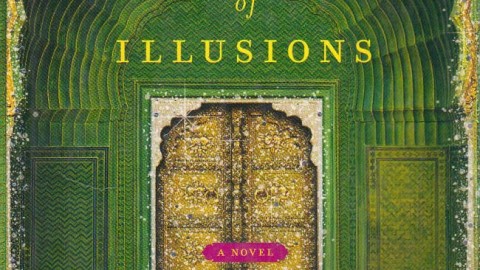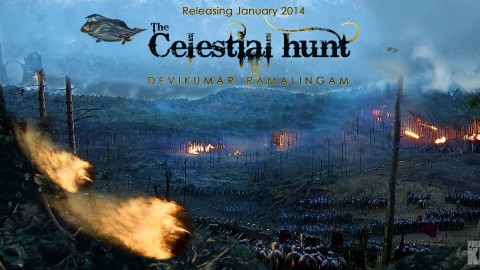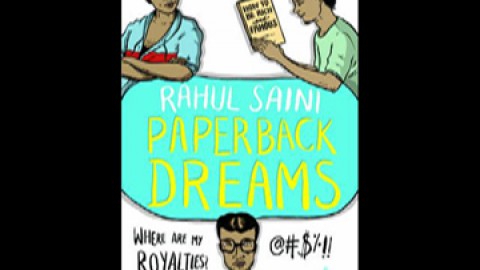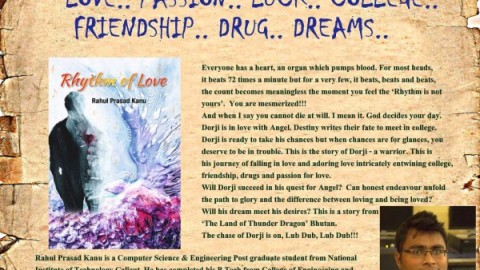Poetry in all countries has preceded other branches of learning. But it has lately been observed that the seeds of degeneration has quietly crept into Blake’s “garden of verses”, Ghalib’s “mehfil”, the Lake District and most importantly, within us. SA Joseph in his book ‘An Apology for Shakespeare’ wages a lone but valiant war for the endangered beauty of recent times- poetry. A much needed discourse, Joseph’s book is Shelley’s Westwind. A compelling read from the start to finish, it assures us of our doubt: “If Winter comes, can Spring be far behind?”
Joseph takes his time to clarify, but at the end of 52 chapters, he does so and how. A bold attempt to defend poetry and literature in all its manifold forms, these are 118 pages of pure fiction written in free verse. Given a 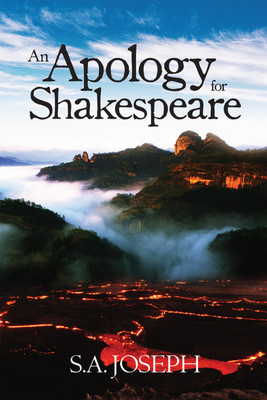 chance to meet his hero, Joseph meets William Shakespeare in his imagination and feeling sorry, he apologizes to his master for the crumbling mansion called poetry; the onslaught of the racy, modern life proving to be the principal threat. Joseph paints a picture of lamentation; a portrait that reveals the loss of tender human feelings and the ability to appreciate a meaningful life from the society at large.
chance to meet his hero, Joseph meets William Shakespeare in his imagination and feeling sorry, he apologizes to his master for the crumbling mansion called poetry; the onslaught of the racy, modern life proving to be the principal threat. Joseph paints a picture of lamentation; a portrait that reveals the loss of tender human feelings and the ability to appreciate a meaningful life from the society at large.
Joseph begins with a disturbing image of a human heart rotting into “dark flesh”, poisoned by snake venom. As the poem progresses, it takes on the hue of a forlorn love song. Themes of beauty, desire, love and longing gel seamlessly as Joseph softly treads the greens of imagination with line such as: “ While I see a faded Western sky/ In the end of a serene eve,/ As it is the symbol of grave.” An aware reader will be presumably impressed at the subtle nod to T. S. Eliot’s “evening, as a patient etherized upon a table.” But this is not even the beginning; Joseph divides his verse into 52 different chapters, all interconnected at some level but pertaining a poetic charm on their own. The listener is the bard himself, who remains calm and silently smiling as Joseph continues to pour his thoughts out. At other instances, Joseph brings back Yeats’ Timon and Michelangelo; their frenzy when he speaks of ‘seeing my grave face/ On a lunatic head!” Joseph thus articulates his emotions through “wandering walks in the midnight, dim lights, / Provided by the Natural sources.”
Years back, it was Matthew Arnold who sought the guiding light of the genius that Stratford-on-Avon gave birth to, in his celebrated poem
“Shakespeare”. Time has stood testimony to the fact that Shakespeare has returned again and again through Broadway musicals, Roman Polansky and nearer home, Disney’s Lion King and Vishal Bharadwaj. It is we who have forgotten or rather forsaken poetry but Shakespeare could still not be abandoned! Joseph’s book takes Shakespeare into close confidence and it goes on to voice against negative and indifferent attitude of the human beings (if at all we can be called so) towards the virtues in life. Though God’s presence is asserted, Satan’s attempt in various forms to influence mankind is touched upon through vital details. Joseph bewares us of the vanishing values in the present generation. A clear need for creating universal fraternity sings through Joseph’s pen; a call for the survival of human sympathy ebbs through cadence that lends his philosophic sweep.
Poetry has always taken on the invisible roles of feminine beauty; be it Milton’s muse or Wordsworth’s Lucy or even Sunil Gangopadhyay’s Neera. Joseph keeps it to a simple “She” as he dabs the colours of inability, delusion and hope into the confident bristles of his brush, mounting his poems as paintings on a rare mahogany easel.

S.A Joseph
A state-of-the-art piece, this book is unfit for coffee table readings and so, will disappoint the masala hungry paperback population. But Joseph should not even be bothered. After all, when was art exhibition blessed with a stronger crowd than that of a dance bar? A thought provoking interpretation of the age and time, this book has the infallible power of human imagination simultaneously potent to contribute meaningful corrections to the often uncontrolled human mind and intellect.
Every day, a piece of music, a short story, or sometimes, a poem, dies, because its existence is no longer justified in our time. Joseph braves to swim upstream and prove us wrong. Dylan Thomas struggled in the light of the “raging moon” to keep poetry alive. Joseph’s ideal seem similar; his aspirations, stronger. Signing off, I would like to dedicate a long forgotten melody to Joseph, saluting his green poetic spirit, where wisdom blossoms in spite of all the loneliness- “Main pal do pal ka shaayer hoon… / Pal do pal meri kahaani hain.”
Book Details:
| Poet | S.A.Joseph | ||
| Publisher | Notion Press | Year of Publication: | 2014 |
| ISBN-13: | 9789384391935 | ISBN-10: | 938439193X |
| Cover: | Paperback | No. of Pages: | 132 |
| MRP: | Rs. 160 | Buy From: | Flipkart.com Amazon.in Infibeam.com |
My Verdict
4
SA Joseph in his book ‘An Apology for Shakespeare’ wages a lone but valiant war for the endangered beauty of recent times- poetry.


